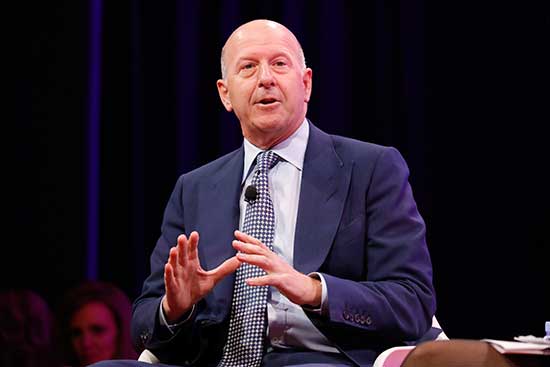多笔投资失败,高盛开始重视利润

|
要问最新一位加入“利润至上”小团体的企业家是谁?是高盛的首席执行官苏德巍(David Soloman)。多年以来,高盛集团轻利润,不计一切代价换取业务增长,然而现在苏德巍幡然醒悟,原来应该利润至上。 在经历了投资Uber和WeWork失败后,苏德巍接受彭博社记者采访表示:“人的成长当然很重要,但对盈利渠道的认识也越来越透彻。”苏德巍认为,市场规范发挥的作用也比以前多。 高盛对Uber、Avantor和Tradeweb Markets等公司的股权投资损失2.67亿美元。在WeWork的IPO计划失败后,高盛已经对持有的WeWork股权损失了8000万美元。上季度也成为高盛三年多来业绩最惨淡的一个季度。 苏德巍指出:“横扫全球的货币政策实际上是在逼迫人们去冒险,强迫大家寻找其他方式获得收益,其中备受追崇的方式之一便是追求增长,某种程度上来说是不计代价求增长。当下的市场状况在警示人们,该收手了。” 苏德巍将WeWork当成资本市场是否正常运转的风向标。在WeWork尝试IPO失败之前,我早就写过该观点。在4月的一篇专栏中,我提到只要有长期增长的潜力,投资者对短期没有利润还是愿意宽容。针对我的观点,《Term Sheet》专栏的一位读者发来了回应: “公司一旦开始追求利润,必定会出现拐点,他们通常挥动定价大棒,信奉成王败寇,即便没有这么夸张至少也会接近。因为如果你不这样做,就无法发展业务,道理就是这么简单。” 我们也开始追求利润了。上个月,Trinity Venture 的帕特里西娅·纳卡什就指出私募资本市场已经掉转方向,不计代价追求增长。现在,公开市场参与进来并直接指出增长的代价已经太大。她在《财富》最具影响力的商界女性峰会上表示:“私有资本市场从一个极端走向另一个极端,本身就是错误。”(财富中文网) 译者:艾伦 审校:夏林
|
The latest financier to get on the “pivoting to profit” bandwagon? Goldman Sachs’s CEO David Solomon. After years and years of companies pursuing revenue growth at all costs and putting profit on the backburner, Solomon is the latest to have the epiphany that profit matters. Stung by Uber and WeWork, Solomon told Bloomberg that “it’s important for people to grow, but there’s got to be a clear and articulated path to profitability.” He added that he thinks there’s a little more market discipline coming into play. Goldman Sachs lost $267 million on public equity investments such as Uber, Avantor, and Tradeweb Markets. Its stake in WeWork fell by $80 million after the company’s failed IPO plan. Last quarter was Goldman’s worst performance in more than three years. Solomon said: “The monetary policy that has been ramping around the world has basically forced people out on the risk curve, has forced people to look for other ways to drive returns, and one of the things they’ve been chasing is growth and to some degree growth at all costs. The market here is speaking and telling people here, let’s rein that in a little bit.” Solomon used WeWork as a signifier that capital markets were functioning properly. I’ve been writing about this way before the WeWork implosion. In an April column, I pointed out that investors are willing to overlook profitability so long as there’s a promise for long-term growth. In response, one Term Sheet reader wrote: “There has to be an inflection point when a company swings to profitability, typically by wielding pricing power in a winner-take-all market, or at least continues inching closer to it. If you don’t have that, you don’t have a business. Plain and simple.” Oh, and we’ve swung. Trinity Ventures’ Patricia Nakache said last month that the private markets have swung way out toward growth at all costs. Now, public markets have weighed in and resoundingly said that this has gone too far. “It’s a mistake in private markets to go from extreme to extreme,” she said at Fortune’s Most Powerful Women Summit. |













